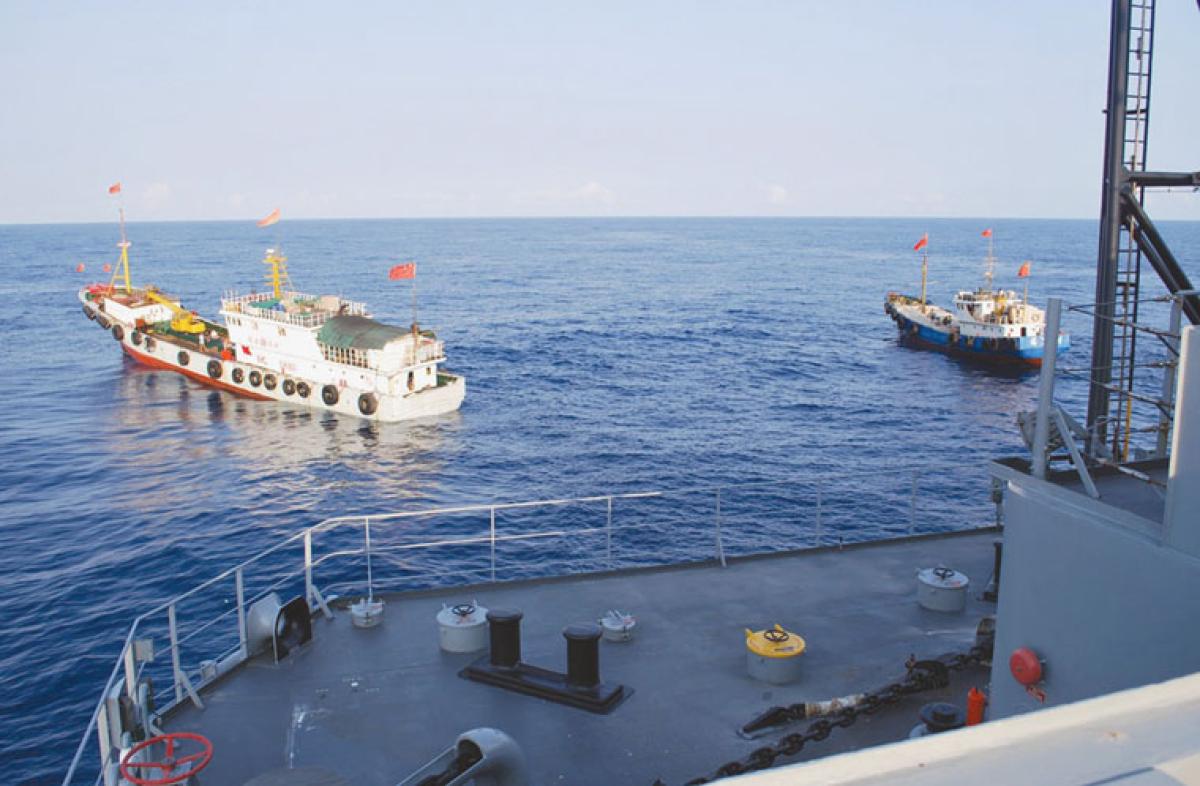The first draft of the United Nations Convention on the Law of the Sea (UNCLOS) was completed in 1982. The treaty provided a broad legal framework governing movement on the sea and the proper handling of sea-based resources. By 1994, treaty revisions had alleviated U.S. concerns regarding deep seabed mining. President Bill Clinton signed and forwarded it to the Senate for advice and consent, but it was never ratified.
President Barack Obama’s administration has recently sought to persuade the Senate to approve UNCLOS. Defense Secretary Leon Panetta, speaking at the Forum on the Law of the Sea Convention on 9 May, stated that it was time for the United States to ratify the 30-year-old pact. However, not all are in agreement. John Bolton, former U.S. ambassador to the United Nations, and Dan Blumenthal, previous Department of Defense senior country manager for China and Taiwan, wrote a Wall Street Journal op-ed in September 2011 arguing against ratification. Their opposition relates to China’s expansive maritime territorial claims, specifically in the South China Sea. The editorial contends that ratification would limit U.S. naval operations while not effectively dealing with China’s expansionist ambitions. On the contrary, UNCLOS ratification would not constrain the U.S. Navy and should dissuade Chinese attempts at territorial expansion in the South China Sea.
UNCLOS presents an idea called the exclusive economic zone (EEZ). This construct was designed to give nations control over certain economic activities within 200 miles of their shores, well beyond their sovereign 12-mile territorial waters. Intended as a balance between coastal states’ abilities to manage and protect ocean resources and maritime users’ rights to high-seas freedom of navigation, the EEZ concept has been manipulated by China as justification to regulate various maritime activities, particularly those of a military nature. There are two recent examples of tension between the United States and China resulting from this. First, the harassment in 2009 of the USNS Impeccable (T-AGOS-23) while performing surveillance in international waters about 70 miles from Hainan Island, and second, the 2001 collision between a U.S. Navy EP-3E Aries II aircraft and a Chinese jet while the U.S. plane was conducting patrol operations over China’s EEZ.
China maintains that UNCLOS prohibits foreign military operations within its EEZ, but the treaty contains no such language. It does, however, give coastal states jurisdiction over scientific research in their EEZs. The 2002 Surveying and Mapping Law of the People’s Republic of China has defined mapping and surveying so broadly as to claim that they constitute research. China asserts that military surveillance and reconnaissance is scientific research per the 2002 law, and thus argues that regulating them is justified since UNCLOS grants countries control rights over scientific research. This is indeed a bold stretch. Yet, if left unchecked, China undoubtedly will continue to interpret UNCLOS provisions in its own interests. As a result, the United States must challenge China on these matters and not allow it to shape the law of the sea in its favor. If we are not a party to the treaty, however, we have no influence over how the law develops. By ratifying UNCLOS, we create the best chance that the law of the sea develops in a manner aligned with our national interests and those of our allies.
China seeks to use UNCLOS’s EEZ provisions to marginalize U.S. influence in the region, because China prefers one-on-one dealings with its smaller neighbors. Those neighbors, on the other hand, favor multilateral negotiations that better balance China’s greater power. The smaller ones often welcome U.S. involvement, since many view us as a friend. However, they also recognize that our interests at times may differ from theirs. Therefore, they seek assurances that the United States can provide a strong balance to China’s growing power without threatening their affairs. Since they all are parties to UNCLOS, they would receive such assurances by our conformance with the treaty’s principles. Ratifying UNCLOS, then, sends a clear message that we intend to be a dedicated partner in forging their regional futures.
UNCLOS treats EEZs as international waters. As long as the United States aggressively and repeatedly asserts this fundamental fact, we need not fear constraint of our naval forces. Ratifying UNCLOS only bolsters this argument in our favor. Furthermore, it affords us more influence in shaping its provisions and makes us a more persuasive partner on behalf of China’s neighbors. As a result, we more effectively restrain China’s territorial aspirations in the South China Sea. Per Secretary Panetta, “The time has come for the United States to have a seat at the table. The time has come for the United States to fully assert its role as a global leader and accede to this important treaty.”



